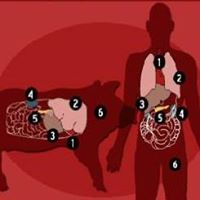Erectile dysfunction.
Sexual dysfunction is a general term describing persistent or recurring problems related to sexual desire, arousal, orgasm, or pain during sex. It can affect both men and women and has multiple causes, which can be physical, psychological, or a combination of both. Below is a breakdown of the main types and some common causes:
________________________________________
Types of sexual dysfunction
In men:
1. Erectile dysfunction:
o Difficulty getting or maintaining an erection.
2. Premature ejaculation:
o Ejaculation that occurs sooner than desired.
3. Delayed ejaculation or anorgasmia:
o Difficulty or inability to ejaculate.
4. Low sexual desire:
o Decreased interest in sexual activity.
________________________________________
Main causes
1. Physical:
o Chronic diseases (diabetes, hypertension, heart disease).
o Hormonal imbalances (low testosterone levels, menopause).
o Side effects of medications (antidepressants, antihypertensives).
o Excessive alcohol, drug, or tobacco use.
o Neurological disorders.
2. Psychological:
o Stress, anxiety, or depression.
o Self-esteem or body image problems.
o Traumatic experiences (abuse, sexual violence).
o Conflicts in relationships.
3. Social and cultural factors:
o Religious beliefs or cultural taboos.
o Lack of sexual education.
o Unrealistic expectations about sexual performance.
________________________________________
Treatment
Treatment depends on the underlying cause and includes:
1. Psychological therapies:
o Cognitive-behavioral therapy.
o Couples therapy.
o Stress or anxiety management.
2. Drugs and medical treatments:
o Sildenafil for erectile dysfunction.
o Hormonal therapies (such as estrogen or testosterone).
o Local treatments, such as lubricants or creams.
3. Lifestyle changes:
o Improve diet and exercise regularly.
o Reduce alcohol consumption and avoid drugs.
4. Sex education and communication:
o Talk openly with your partner about preferences and problems.
5. Cytotherapy
The pituitary gland (or hypophysis) plays a fundamental role in the functioning of the testicles since it regulates their activity through the secretion of hormones. This process involves the hypothalamus-pituitary-gonadal axis, a hormonal control system that coordinates the production of sex hormones in the body.
Hormones of the pituitary gland: The pituitary gland secretes two important hormones that act directly on the testicles:
o Luteinizing hormone (LH): Stimulates Leydig cells in the testicles to produce testosterone, the main male sex hormone.
Follicle-stimulating hormone (FSH): Acts on the Sertoli cells, which are responsible for the support and development of sperm in the seminiferous tubules. Testosterone production: Testosterone is essential for the development of secondary sexual characteristics (such as facial and body hair growth, deep voice, and muscle mass) and also for the regulation of libido and sexual behavior. LH stimulates Leydig cells to produce this hormone.
In short, the pituitary gland regulates the function of the testicles and ensures the production of testosterone and sperm, thus maintaining hormonal balance and fertility in men.
The Cytotherapy that has been used in Mexico is based on piglet pituitary gland and has been applied to patients with diabetes mellitus I and II, menopause, sexual dysfunction, senile dementia, and thyroid, to slow down the processes that lead to aging and chronic and degenerative diseases in general.
Good health to all.
Email jesus17021959@gmail.com
.jpg)





.jpg)





Comentarios
Publicar un comentario